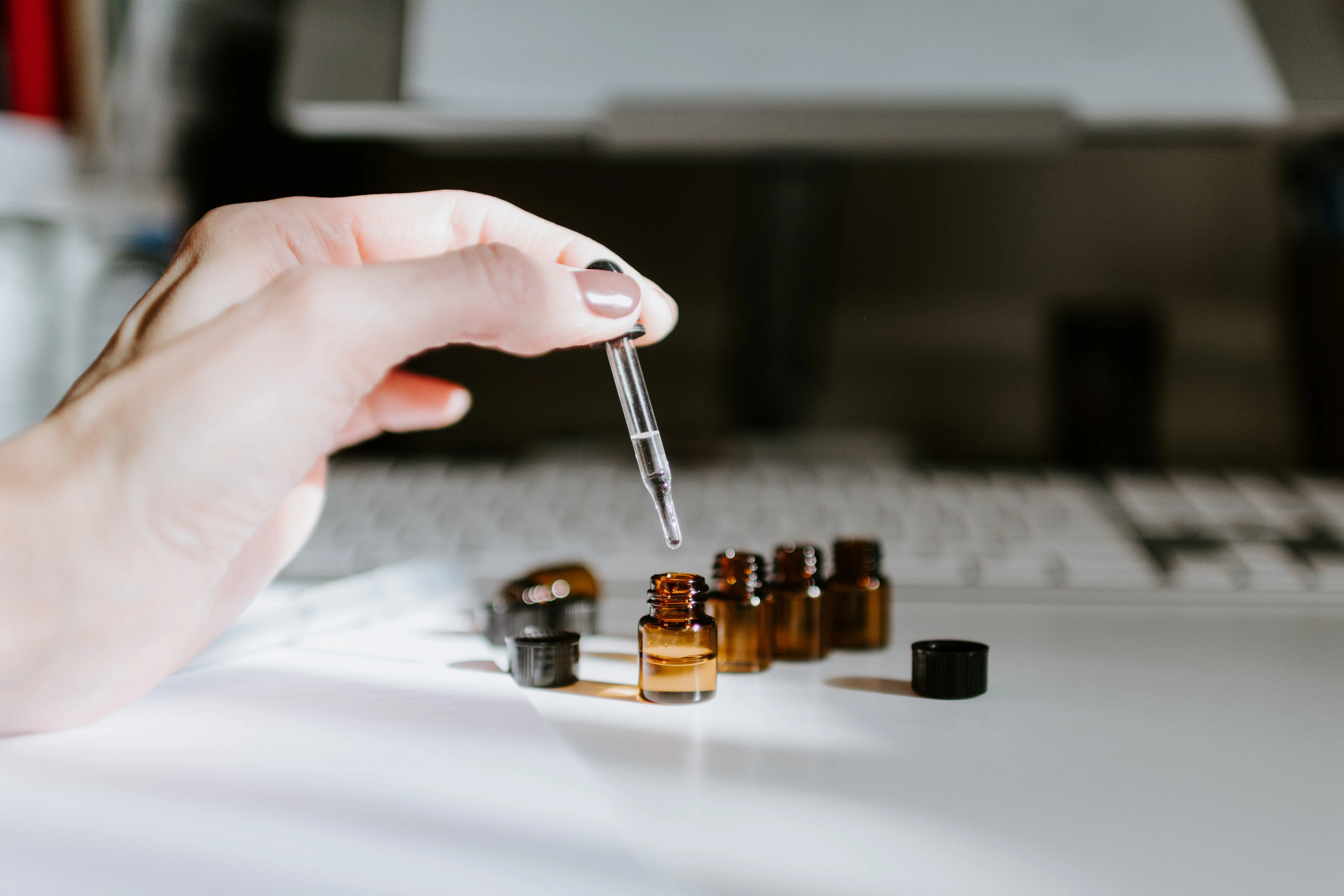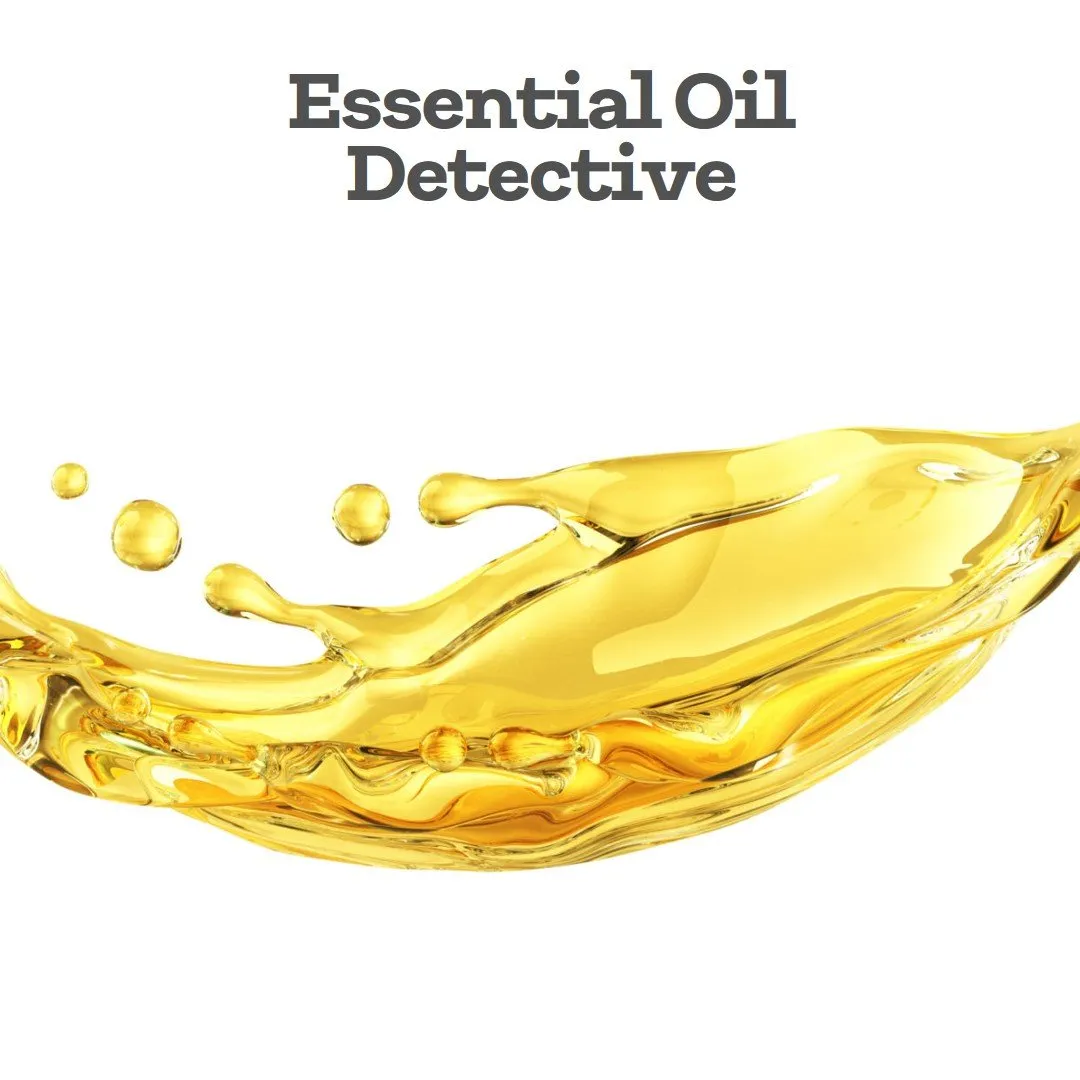Essential Oils for Enhanced Surgical Recovery & Healing
Navigating the road to recovery after surgery or during hospitalization can be a challenging journey, both physically and emotionally.
As a professional aromatherapist, I am here to shed light on the soothing and healing power of essential oils, which can play a significant role in aiding your recovery process. These natural wonders, derived from plants, possess therapeutic properties that can promote relaxation, alleviate discomfort, and support the body's innate healing mechanisms.
In this blog post, we will explore the benefits of using essential oils during your recovery journey and provide you with some expertly crafted blend recipes to try.
Understanding the Power of Aromatherapy

Aromatherapy, the art of using essential oils to improve physical and emotional well-being, has been practiced for centuries across various cultures. Essential oils are volatile compounds extracted from plants, carrying the plant's distinct aroma and therapeutic properties.
When inhaled or applied to the skin, these oils can influence the limbic system—the part of the brain responsible for emotions, memories, and behaviors—thereby promoting relaxation, reducing stress, and supporting healing processes.
Benefits of Using Essential Oils for Recovery

Pain Relief: Certain essential oils possess analgesic properties that can help manage post-surgery discomfort. Oils like Lavender, Frankincense, and Roman Chamomile can provide natural pain relief and relaxation.
Reduced Anxiety and Stress: The aroma of essential oils can have a profound impact on your emotional state. Oils such as Bergamot, Ylang Ylang, and Clary Sage are known for their anxiety-reducing and mood-lifting effects.
Improved Sleep Quality: Restful sleep is crucial for recovery. Essential oils like Cedarwood, Vetiver, and Marjoram can promote relaxation and aid in achieving a peaceful night's sleep.
Enhanced Circulation: Essential oils like Rosemary and Ginger can support improved blood circulation, aiding the delivery of nutrients and oxygen to healing tissues.
Faster Wound Healing: Some essential oils possess antiseptic and wound-healing properties. Tea Tree oil, Lavender, and Helichrysum can be beneficial for supporting the healing of surgical wounds.
Boosted Immunity: Essential oils such as Eucalyptus, Lemon, and Tea Tree have immune-strengthening properties that can help your body ward off infections during your recovery.
Aromatic Blends for Recovery

Creating a well-balanced blend of essential oils is an art, and these blends should be used safely.
Always perform a patch test before applying any blend to a larger area of skin, especially if you have sensitive skin or allergies. It's also recommended to consult with your healthcare provider before using essential oils, especially if you have underlying health conditions or are taking medications.
1. Comforting Pain Relief Blend:
- 4 drops Lavender
- 3 drops Frankincense
- 3 drops Roman Chamomile
- 2 tablespoons carrier oil (e.g., Sweet Almond oil)
Combine the essential oils with the carrier oil in a small, dark glass bottle. Gently shake to mix well. Apply a small amount to the affected area and massage in circular motions for pain relief and relaxation.
2. Serene Sleep Support Blend:
- 4 drops Cedarwood
- 3 drops Lavender
- 2 drops Vetiver
- 2 tablespoons carrier oil
Mix the essential oils with the carrier oil in a glass bottle. Shake well before use. Apply a small amount to your pulse points, such as your wrists and temples, before bedtime to promote restful sleep.
3. Calming Anxiety Blend
- 4 drops Bergamot
- 3 drops Ylang Ylang
- 2 drops Clary Sage
- 2 tablespoons carrier oil
Combine the essential oils with the carrier oil and shake well. Rub a few drops of the blend between your palms, cup your hands over your nose, and inhale deeply to ease anxiety and uplift your mood.
4. Wound Healing Blend
- 3 drops Tea Tree oil
- 3 drops Lavender
- 2 drops Helichrysum
- 2 tablespoons carrier oil
Mix the essential oils with the carrier oil thoroughly. Apply a small amount to clean, dry gauze and gently place it over the wound, securing it with a bandage. This blend can support the healing process of minor wounds and incisions.
5. Immune-Boosting Blend
- 3 drops Eucalyptus
- 3 drops Lemon
- 2 drops Tea Tree oil
- 2 tablespoons carrier oil
Blend the essential oils with the carrier oil and mix well. Massage a small amount onto your chest and neck area. This blend can help boost your immune system and provide respiratory support.
Incorporating essential oils into your recovery journey can be a gentle yet powerful way to support your body's natural healing processes and uplift your spirits.
Remember that each individual's response to aromatherapy can vary, so it's important to listen to your body and adjust your usage accordingly. Always choose high-quality, pure essential oils, and consult with a qualified aromatherapist or healthcare professional if you have any concerns.
Wishing you a swift and harmonious recovery journey.
